Alec Cowan
Producer, Soundside
About
Alec Cowan is a producer for Soundside. His interests have brought many eclectic stories to the program, and his segments gravitate toward history, technology, arts and culture, and the environment. Proud to be KUOW's unofficial "boat guy."
Prior to joining Soundside, Alec wore many hats at KUOW. He was a producer for The Record with Bill Radke and Primed seasons two and three . He also reported an episode of SoundQs detailing how prohibition forever changed Seattle policing and assisted with reporting a breakthrough cold case solved with the use of genetic genealogy.
Before joining KUOW Alec worked in NPR's Story Lab, where he helped pilot the Louder Than a Riot podcast, about hip-hop and mass incarceration, and assisted in producing a story on volunteerism in Iraq for Rough Translation. Originally from Grand Junction, Colorado, his roots in the Northwest begin in Eugene, where he studied English and philosophy at the University of Oregon and worked as a news reporter for NPR member station KLCC. He is likely neglecting his saxophone, growing book collection, and expanding personal project list in favor of boosting his online Xbox ranking.
Location: Seattle
Languages Spoken: English
Pronouns: he/him/his
Podcasts
Stories
-

Sports
Major League Baseball brings a magnifying glass to Seattle
Major League Baseball’s All Star Game has returned to Seattle. On Monday, Mariners prodigy Julio Rodriguez broke the home run derby record for most runs in a single round. And outside the T-Mobile Park, Seattle’s Sodo neighborhood has been transformed into an MLB playground expected to bring in 100,000 people for the festivities. But the makeover hasn’t just meant cleaning sidewalks or a new paint job.
-
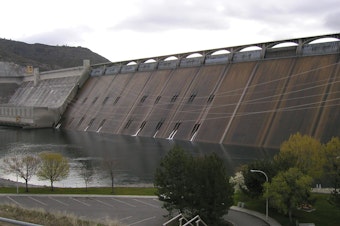
Arts & Life
Remembering the music that put Grand Coulee on the map
80 years ago Washington state was forever changed by the Grand Coulee Dam. The Dam still provides tons of hydropower today, and created a reservoir for farmers to divert and use as the breadbasket of the state today. When it was finally completed in January of 1943, US Government officials enlisted folk music legend Woody Guthrie to write a series of 26 songs about the dam. It’s a quirky moment in US and music’s history – but it produced instant classics that many will recognize, like “Roll on Columbia.”
-
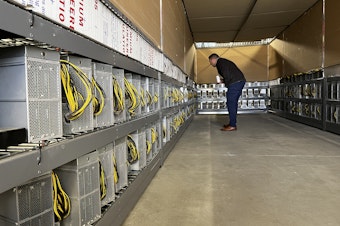
Technology
When power is cheap, crypto moves in. The fallout in rural WA is complex
Take a drive along the Columbia River and you’re bound to see towering dams that produce the bulk of our state’s hydropower. That energy is a point of pride for many Washingtonians – it’s plentiful, clean, and renewable. If you have direct access to that power, your electric bill is probably pretty darn cheap. In recent years the promise of that dirt-cheap electricity has brought swarms of cryptocurrency miners to small towns throughout Central and Eastern Washington. At times, that’s led to some rather unneighborly feelings.
-
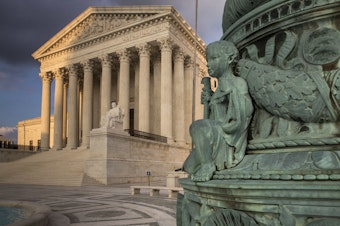
Education
What does SCOTUS' ruling against affirmative action mean for WA?
The U.S. Supreme Court on Thursday overturned more than four decades of legal precedent by declaring affirmative action unconstitutional. What does it mean for Washington?
-
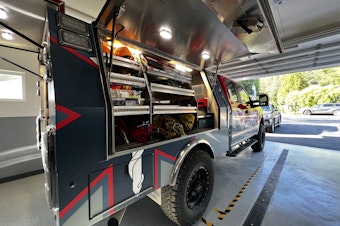
Environment
Seattle Mountain Rescue celebrates first home base in North Bend
For 75 years, Seattle Mountain Rescue has relied on a constellation of volunteers and a mixed bag of resources to help lost hikers and injured adventurers. As King County has exponentially grown, the demand for Mountain Rescue services has too. Now, for the first time, the non-profit will have a base of operations in North Bend.
-

Government
WA Secretary of Transportation on roads, bridges, and ferries
You may be hitting the road soon to enjoy some of the many beautiful parts of Washington State. But projects are underway throughout the state, including highway maintenance, reduced ferry services, and bridge repairs.
-
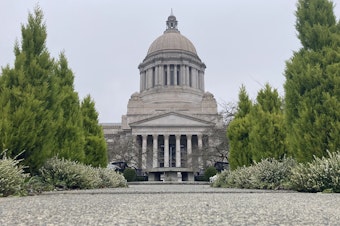
Education
Sound it Out: An update on expanded school oversight
Each week we ask for your thoughts about our stories — where they've succeeded and where they can improve. Today, we're revisiting a segment we aired on the state's expanded oversight over "nonpublic agencies."
-

Environment
Rare and resilient: Sunflower sea stars found on Oregon Coast
Staff at the Oregon Coast Aquarium regularly search nearby Yaquina Bay for ocean life. On a recent voyage, they came across a big surprise – a group of 25 sunflower sea stars.
-

Government
Yakima looks to 'Housing First' approach as homelessness grows
Solutions to homelessness are becoming more of a political issue – especially for a strategy known as “Permanent Supportive Housing,” or “Housing First.” This policy emphasizes getting people into housing as a first step toward solving more chronic issues like mental health or addiction. For decades this approach has had bipartisan support. But recent challenges from Republicans at the federal level are threatening the avenues for local programs to tap into national funds.
-
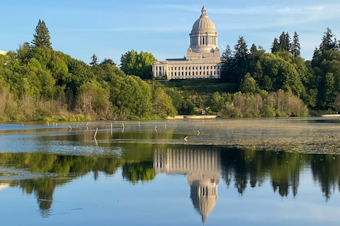
Education
WA Legislature expands public school oversight of private special ed schools
Students with special education needs face an uphill battle in Washington state. The state has a constitutional obligation to provide basic education for all students. But Washington is among the majority of states facing a shortage of special education teachers.
